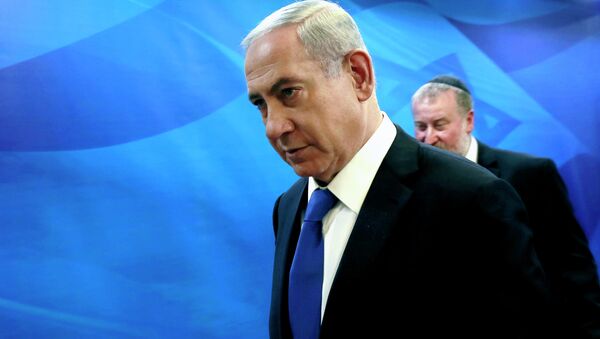"The consensus in Israel, and this includes the Likud and the Labor, is that Iran is a threat and that the deal or the agreement with Iran is not a good agreement, and it should be at least modified," professor at Ben-Gurion University of the Negev Yoram Meital told Sputnik Monday.
On March 17, Israel will hold parliamentary elections. The two largest parties – Likud headed by current Prime Minister Benjamin Netanyahu, and the opposition Zionist Union, led by Isaac Herzog are running neck-and-neck with the polls giving 24 seats to each party in the 120-seats Knesset (Israeli parliament).
Although Israel could have a new prime minister, experts agree that its position on Iran is unlikely to change.
"As for Iran, I believe that Herzog will be just as wary of this theocratic dictatorship that supports terrorism going nuclear — from a political point of view, the smart move for Herzog will also be to stay tough on Iran to show that he is not a pushover, even as he goes softer on the Palestinians," Gil Troy, a professor of history at McGill University told Sputnik. "I don't think Bibi staying or going will affect the P5+1 talks, they are ignoring his words now anyway…"
At the same time, in the event of Herzog winning the elections, Israel watchers predict significant changes in Israel's regional policy, especially toward Palestine.
He said that if Herzog comes to power, he will launch a new peace initiative, though Palestinians could be just as resistant to making peace as they were when Ehud Olmert made very generous concessions.
Both experts underlined that the major goal of the new Israeli leadership will be revive its ties with Washington.
"First and foremost, the major challenge will be to revive, to get into more workable relations with the Obama administration," Meital said.
Gil Troy also stressed that if Israel elects a new leader, there will be a surge of optimism in the media about Israel having "returned to itself," which will in turn lead to more warm initiatives."
"… but once they get into actual negotiations, if, as before, Palestinians remain stubborn, and the Administration blames Israel despite it being the Palestinians' fault, there will be tension… some of the White House hostility we are seeing has grown beyond Bibi to Israel, that's a problem, and a new Israeli leadership will uncover that quickly," Troy said.
There is over a week until the elections, and the polls' results may change, as public opinion in Israel appears volatile so there could be dramatic shifts in the next week.




